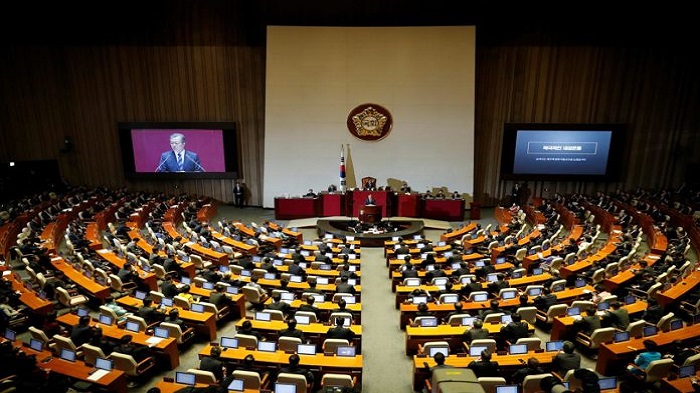Culture Minister Park Yang-woo has announced a plan to support the Korean gaming industry with the aim of leading the future global market.
“We will lead innovative growth of the game industry by actively revising the regulatory system,” Yang-woo said during a press briefing held in Seoul on Thursday.
Over the last 10 years, a steady 9.8 per cent growth per annum was registered by the Korean game industry. With an export of about $6.4 billion a year, the gaming industry is the main reason behind 8.8 per cent of the country’s trade surplus. By 2020, the government is expecting the gaming industry to reach 19.9 trillion won in sales and 11.5 trillion won in export. During a press conference held in Seoul in the month of May, he said, “Large global conglomerates such as Google and Facebook are expanding in the global gaming market with new technologies. However, there is criticism that our regulations are not reflecting such changes and blocking Korean game business from growing.”

The Culture Ministry expects that with its support 102,000 new jobs will be created during the next four years. It added that the government will also support to grow the industry to reach 19.9 trillion won in sales and 11.5 trillion won in export amount by 2024.
“We expect that the main growth engine (to reach this goal) will be small and medium-sized companies,” Content Policy Bureau culture ministry’s director general of Kim Hyun-hwan added.
The government plans to expand the Global Game Hub Center, which currently supports game startups. The ministry also plans to provide consulting services and create a system for information about the foreign market to support small and medium-sized companies who are willing to expand their presence overseas. During the briefing, the ministry also emphasised its plans to support the Korean esports industry.
“As a current leader of the esport industry, we will create an ecosystem to stretch out further,” Park said.
He explained that the ministry will designate some local PC rooms as an esport facility and turn it into a center for holding diverse amateur game events and fostering amateur e-sports teams.
To protect professional esports players, the ministry will create and distribute a standard contract form. The government also plans to enforce an official player registration system this year.
